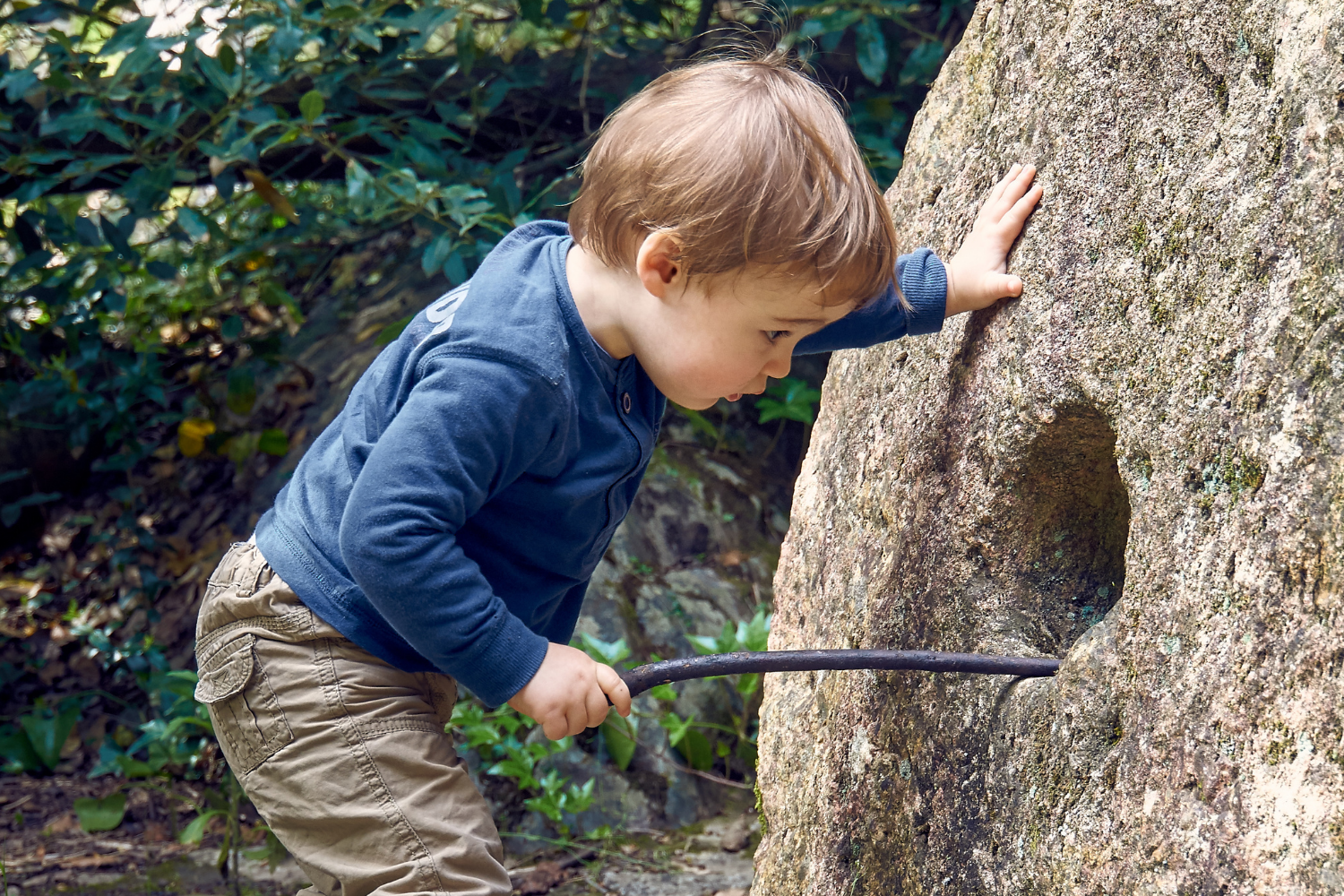We are now raising kids in a cultural environment that is not conducive to developing good social skills or well-trained minds.
Your biggest obstacle to raising solid kids today is technology. You will first need to understand just a little about how technology affects the growing brain, and then I’ll share my 3 strategies for raising kids who excel socially and academically.
Your Child’s Precious Brain Cells
Did you know your child is born with about 100 billion brain cells and that these cells make trillions of connections with one another during his first three years of life?
And did you know that those very connections form the foundation of his intelligence?
Yet, because of the overuse of technology, too many children are not receiving adequate stimulation during the pre-adolescent years which inhibits the formation of new neural pathways.
On top of that, if they don’t sufficiently use the pathways they have formed; the unused pathways will be sloughed off at adolescence.
“Technology: ‘the knack of so arranging the world that we don’t have to experience it.”
Simply put, despite the generous pediatric recommendations, if your child is in the habit of using technology, chances are there may be some delays and possible disruption to his developmental processes.
I am going to be blunt with you: if your child is using technology, he may not become as intelligent as a child who has a tech-free childhood. It is the obvious conclusion when you understand how technology affects the growing brain.
What Can A Parent Do?
With our children being targeted by educational software companies, and with the gaming industry's enormously powerful lobby, navigating a world with less technology does require some effort.
It is possible and you can do it, however, you must be intentional if you want to raise an intelligent, ethical, critically-thinking child.
There are 4 things you can do which will protect your child mind, and by default, make your life easier. .
Strategy #1: Out of Sight, Out of Mind
The first action you can take is to remember that your children will not ask for technology if they don't see you using it or see it in the home.
Therefore, out of sight, out of mind.
Host your television and computer in your bedroom and / or office, and, for the most part, keep yourself unplugged during the time that you spend with your children.
As far as your home is concerned, it's really that simple.
“I find television very educating. Every time somebody turns on the set, I go into the other room and read a book.”
Strategy #2: Going Against the Grain
When you visit friends, don't be shy to let them know that you are raising your children in a low-tech zone and that you prefer your children play with their kids rather than plugin together.
After all, that’s why you brought them over—to play together.
When it comes to our children's well-being, we have to stand up for what is best for them, even if we get slack from others.
We have to remind ourselves that our child’s well-being is more important to us than what others think about our choices.
Fortunately, most intelligent and reasonable parents will respect your request. (If they don't, you may want to question the value of their friendship.)
Strategy #3: The Forbidden Apple Syndrome
Here is the crux of the matter, though: You absolutely must find like-minded family and friends to raise your children with.
You cannot be the only parent to say "no" to technology; otherwise, technology is exactly what your child will seek out the minute he leaves home. We call it the Forbidden Apple syndrome.
If you don’t find like-minded friends, your children will see you as the odd parent who doesn’t like technology.
“If it keeps up, man will atrophy all his limbs but the push-button finger.”
Underneath this new attitude towards you will be one of disrespect. It's the curse of raising kids in the West where mainstream practices are not often what’s best for our children.
What if you can’t find like-minded friends? The sad answer is that you will probably have to compromise a little to avoid the Forbidden Apple syndrome.
#4 Homeschool Your Kids
When you homeschool your children, it is much easier to keep them off screens. As a homeschooler, you will hopefully raise strong readers, and strong readers excel academically.
Instead of giving your kids screens, you will give them real books.
Your child will develop better social skills by being homeschooled, too. He will not be exposed to the negative social environment so prevalent in schools today. Instead, you will raise him to have good manners and teach him how to get along with other people.
Good social skills are much easier to develop if a child is being homeschooled. It has been studied and proven to be true.
Therefore, keep your kids off of screens!
It must follow, as the night, the day,* they will do better academically and socially.
A line from Hamlet by William Shakespeare
Don’t miss our free download, Ten Books Every Well-Educated Child Should Read.
Teach your child to read before sending him to school! Learn more about Elizabeth's unique course, How to Teach Your Child to Read and Raise a Child Who Loves to Read.
For parents of children under age seven who would like to prepare their child for social and academic success, please begin with Elizabeth’s singular online course, Raise Your Child to Thrive in Life and Excel in Learning.
When you join the Smart Homeschooler Academy online course for parents, Elizabeth will make homeschooling manageable for you. She’ll guide you in helping your kids reach their intellectual potential and developing good character.
As a homeschooler, you will feel confident, calm, and motivated knowing you have the tools and support you need to homeschool successfully.
Elizabeth Y. Hanson is a homeschooling thought-leader and the founder of Smart Homeschooler.
As an Educator, Homeschool Emerita, Writer, and Love and Leadership Certified Parenting Coach, Elizabeth has 21+ years of experience working in education.
Developing a comprehensive understanding of how to raise and educate a child, she devotes her time to helping parents get it right.
Elizabeth is available for one-on-one consultations as needed.
"I know Elizabeth Y. Hanson as a remarkably intelligent, highly sensitive woman with a moral nature and deep insight into differences between schooling and education. Elizabeth's mastery of current educational difficulties is a testimony to her comprehensive understanding of the competing worlds of schooling and education. She has a good heart and a good head. What more can I say?”
—John Taylor Gatto Distinguished educator, public speaker, and best-selling author of Dumbing Us Down: The Hidden Curriculum of Compulsory Schooling





























































